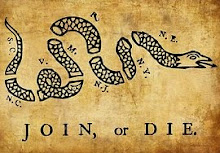Who Benefits From Government Unions?
By Michael Barone
"Everyone has priorities. During the past week, Barack Obama found time to be interviewed by a Wisconsin television station and weigh in on the dispute between Republican Gov. Scott Walker and the state's public employee unions. Walker was staging "an assault on unions," he said, and added that "public employee unions make enormous contributions to our states and our citizens."
Enormous contributions, yes -- to the Democratic Party and the Obama campaign. Unions, most of whose members are public employees, gave Democrats some $400 million in the 2008 election cycle. The American Federation of State, County and Municipal Employees, the biggest public employee union, gave Democrats $90 million in the 2010 cycle.
Follow the money, Washington reporters like to say. The money in this case comes from taxpayers, present and future, who are the source of every penny of dues paid to public employee unions, who in turn spend much of that money on politics, almost all of it for Democrats. In effect, public employee unions are a mechanism by which every taxpayer is forced to fund the Democratic Party.
So, just as the president complained in his 2010 State of the Union address about a Supreme Court decision that he feared would increase the flow of money to Republicans, he also found time to complain about a proposed state law that could reduce the flow of money to Democrats.
And, according to The Washington Post, to get the Democratic National Committee to organize protests against the proposed Wisconsin law. Protests that showed contempt for the law, with teachers abandoning classrooms, doctors writing phony medical excuses, Democratic legislators fleeing the state and holing up in a motel. The lawmakers played hooky without losing any salary, which is protected by the state constitution.
It's true that Walker's proposals would strike hard at the power of the public employee unions. They would no longer have the right to bargain for fringe benefits, which are threatening to bankrupt the state government, and they would no longer be able to count on government withholding dues money and passing it along to them.
But what are the contributions that public employee unions make to our states and our citizens? Their incentives are to increase the cost of government and reduce down toward zero the accountability of public employees -- both contrary to the interests of taxpaying citizens.
An argument can be made that higher pay, generous benefits and lavish pensions will attract better people to public employment. But where are the studies that show that citizens of states with strong public employee unions get better services than citizens in states without?
What citizens of states with strong public employee unions do get are higher taxes and enormous pension burdens that threaten to squeeze out funds for ongoing services, as even Democratic governors like Andrew Cuomo of New York and Jerry Brown of California have figured out.
That's why one of the great 20th century presidents was against unions for public employees who have civil service protections. No, not Ronald Reagan. It was Franklin Roosevelt who said, "Action looking toward the paralysis of government by those who have sworn to support it is unthinkable and intolerable."
So while the Wisconsin unions are defying the law, Scott Walker is in effect following FDR's lead -- and if he's successful, others may follow. That would be an enormous blow to the money power of the public employee union bosses.
Public opinion seems to be with the Republicans. Pollster Scott Rasmussen reports that 48 percent of voters support Walker, while only 38 percent support the unions.
This seems to be a sharp reversal of opinion over the last five years. Back in 2005, California Gov. Arnold Schwarzenegger sponsored a series of ballot propositions that would have reduced the power of the state's public employee unions. The unions spent something like $100 million -- all of it derived from taxpayers -- on TV ads, and all the propositions were defeated.
Now hard economic times have left voters wondering why public employees pay practically zero toward their health insurance and pensions when they have to pay plenty themselves. Wisconsin, which led the nation on civil service a century ago and on welfare reform in the 1990s, may be showing the nation the way ahead once again."
Subscribe to:
Post Comments (Atom)

No comments:
Post a Comment